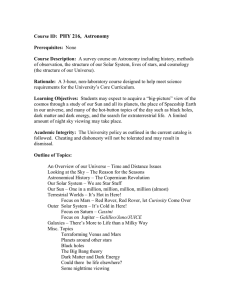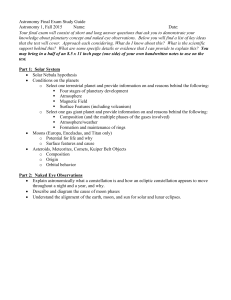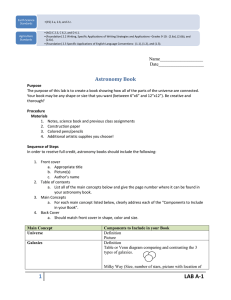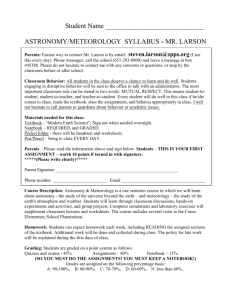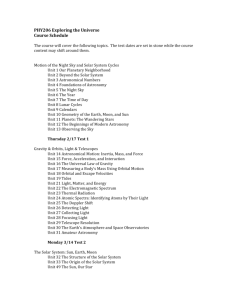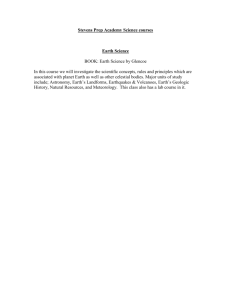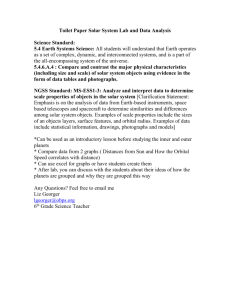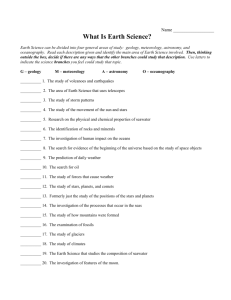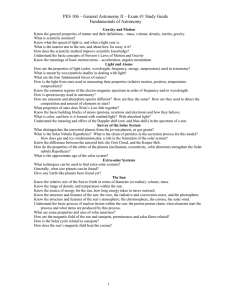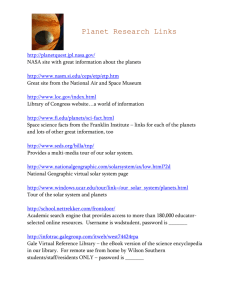Astronomy and Meteorology Syllabus
advertisement
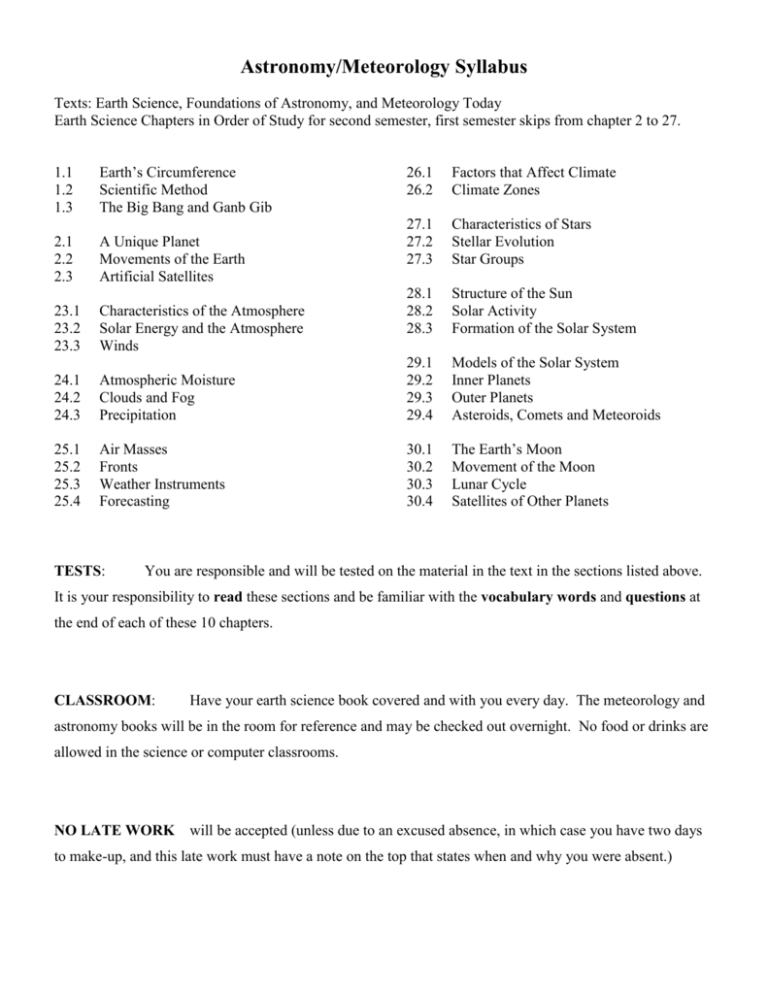
Astronomy/Meteorology Syllabus Texts: Earth Science, Foundations of Astronomy, and Meteorology Today Earth Science Chapters in Order of Study for second semester, first semester skips from chapter 2 to 27. 1.1 1.2 1.3 Earth’s Circumference Scientific Method The Big Bang and Ganb Gib 26.1 26.2 Factors that Affect Climate Climate Zones 27.1 27.2 27.3 Characteristics of Stars Stellar Evolution Star Groups 28.1 28.2 28.3 Structure of the Sun Solar Activity Formation of the Solar System 2.1 2.2 2.3 A Unique Planet Movements of the Earth Artificial Satellites 23.1 23.2 23.3 Characteristics of the Atmosphere Solar Energy and the Atmosphere Winds 24.1 24.2 24.3 Atmospheric Moisture Clouds and Fog Precipitation 29.1 29.2 29.3 29.4 Models of the Solar System Inner Planets Outer Planets Asteroids, Comets and Meteoroids 25.1 25.2 25.3 25.4 Air Masses Fronts Weather Instruments Forecasting 30.1 30.2 30.3 30.4 The Earth’s Moon Movement of the Moon Lunar Cycle Satellites of Other Planets TESTS: You are responsible and will be tested on the material in the text in the sections listed above. It is your responsibility to read these sections and be familiar with the vocabulary words and questions at the end of each of these 10 chapters. CLASSROOM: Have your earth science book covered and with you every day. The meteorology and astronomy books will be in the room for reference and may be checked out overnight. No food or drinks are allowed in the science or computer classrooms. NO LATE WORK will be accepted (unless due to an excused absence, in which case you have two days to make-up, and this late work must have a note on the top that states when and why you were absent.)
